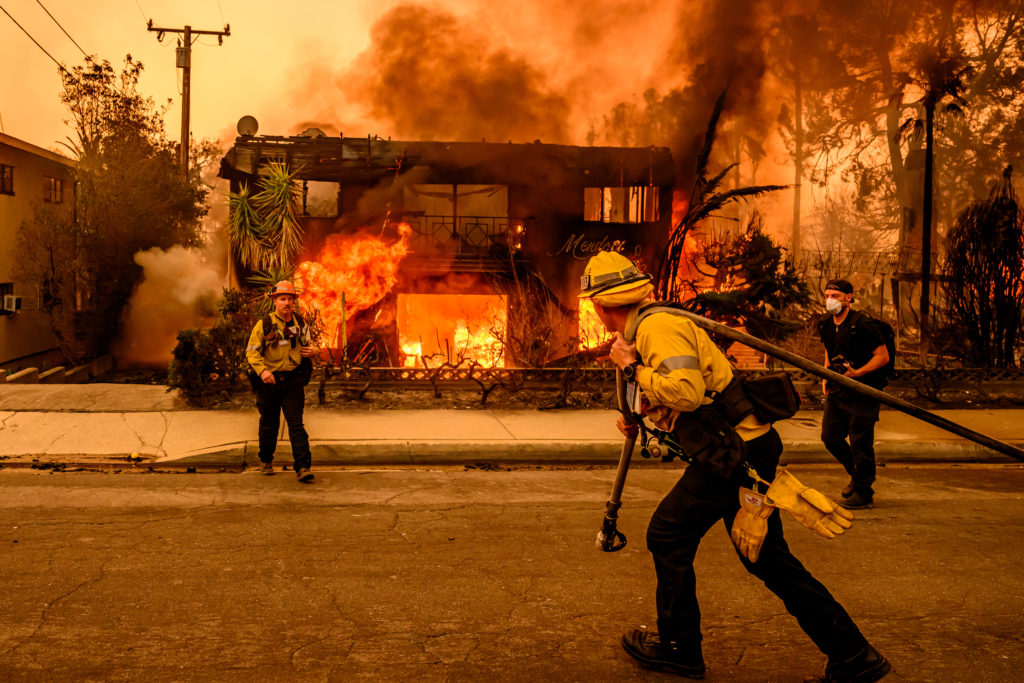Taking crucial exams in lockdown, adapting to home-schooling and cancelling family reunions — Xi’an residents are enduring a near-total city closure to curb a tiny outbreak, as China presses on with its zero-Covid strategy ahead of the Winter Olympics.
The city transformed as all 13 million residents were ordered to stay home: streets emptied, people formed long lines at Covid-19 testing stations, and officials cordoned-off apartment compounds.
The historic former capital — a popular destination for international tourists prior to the pandemic — was swiftly sealed off after more than 200 Covid cases were detected this month.
In China, even a single Covid case can prompt stay-at-home orders and strict travel bans.
Xi’an resident Wei told AFP the lockdown had left her feeling “miserable”, as a series of outbreaks had prevented her from seeing her husband, who lives in Beijing, for months.
“Beijing had an outbreak a while ago, and now Xi’an has an outbreak — it just alternated,” Wei said.
The lockdown comes at a bad time for the city’s graduate school applicants, who are now struggling to ensure they can sit the coming weekend’s national postgraduate entrance exams.
“It’s been a week of anxiety,” said one exam candidate who declined to give her name.
“The exam centre requires two paper nucleic acid certificates from the past 48 hours. But now the nearby test centres only provide electronic results, the nearby hospitals are sealed off, and the exam centre won’t answer the phone.”
With roads blocked, she had no idea how she was going to reach the exam site.
Local media showed residents flocking to markets to stock up on supplies as news of the impending lockdown broke Wednesday.
And state-run Global Times warned Xi’an was facing “a huge test of its governance capability”.
Many local officials across China have been sacked after being judged to handle outbreaks badly, driving local governments to maintain strict rules.
In Xi’an, anxious tourist site operators had already been asking visitors to show negative Covid tests for entry before the outbreak, with train arrivals needing to prove they were Covid-negative.
– Acceptance and support –
China has recorded fewer than 5,000 Covid deaths overall, compared with more than 800,000 in the United States.
With the government sticking rigidly to its zero-Covid strategy, many residents told AFP they supported the stay-at-home order.
“(I believe) it should happen, that there should be a lockdown,” Sun, a Xi’an resident who only wanted to be identified by her surname, told AFP.
She said she had an inkling the lockdown was coming because she lived in a neighbourhood where multiple Covid cases were detected.
“The government said we can go out once every two days to buy things, so I didn’t do any preparation except to buy a few things last night,” said Sun, who will continue working from home.
The country where Covid was first detected has wrestled down infection rates to a mere fraction of those abroad through a now-predictable routine when cases are detected: cut off transport, isolate local residents, and test millions.
Residents told AFP they felt better prepared for lockdown nearly two years into the pandemic, and believed extreme measures were necessary to nip the outbreak in the bud.
“We all saw the lockdown of Wuhan. At the time, nothing was certain, but this time we’re not that panicked and trust the government,” Wei, the resident who had been separated from her husband, said
Wuhan went under lockdown for an unprecedented 76 days in early 2020.
Cordoning off the city is a “countermeasure which we should do at an early stage, as early as possible,” Yuan, an interpreter and mother-of-two living in Xi’an, told AFP.
She said her entire residential compound was about to get tested for the third time since the start of the outbreak.
With schools closed, her two children were switching to online learning, she said.
“Compared with Wuhan, I very much believe that our lockdown will not extend for too much time,” she said.










